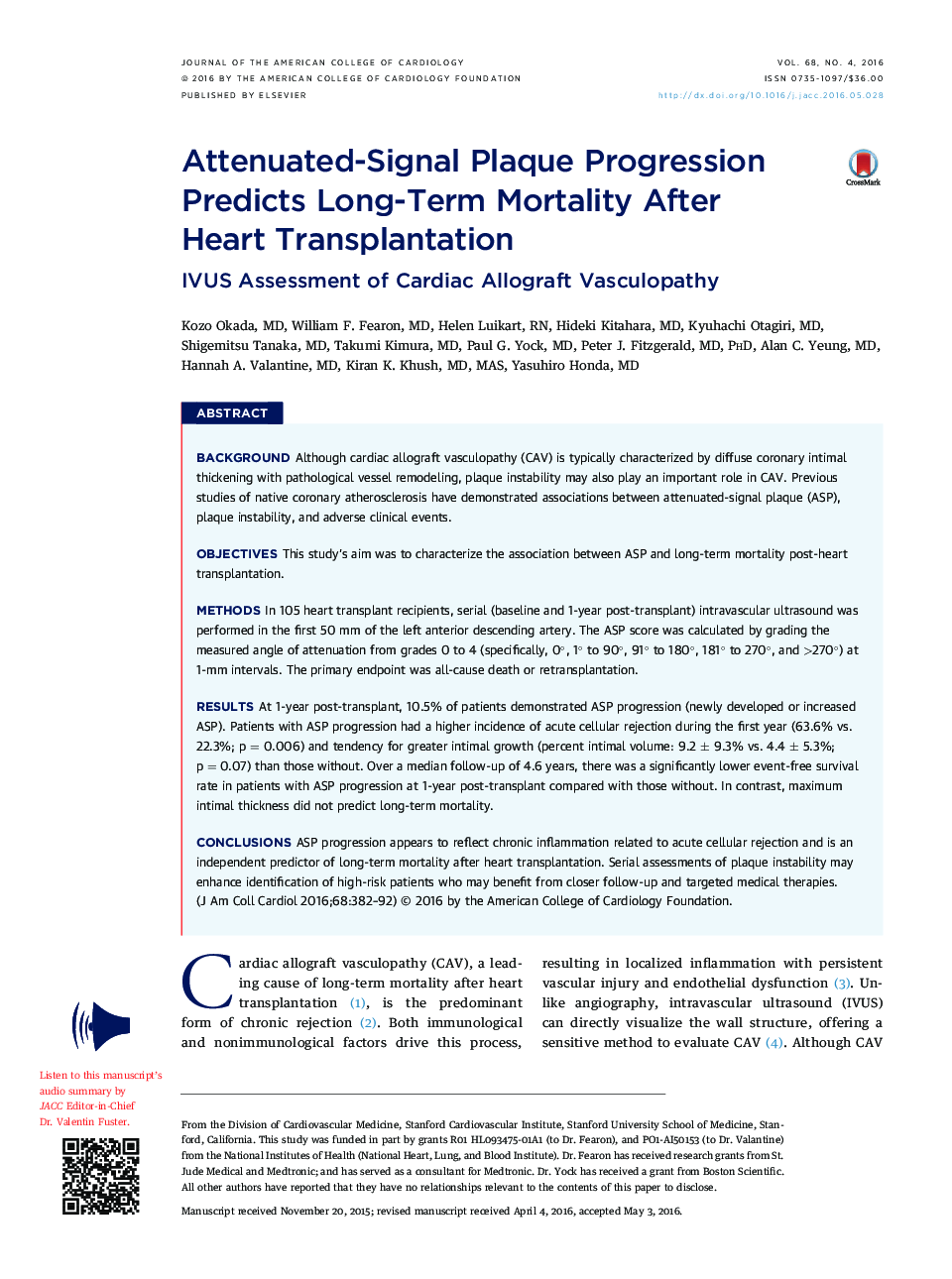| کد مقاله | کد نشریه | سال انتشار | مقاله انگلیسی | نسخه تمام متن |
|---|---|---|---|---|
| 5981480 | 1576983 | 2016 | 11 صفحه PDF | دانلود رایگان |

BackgroundAlthough cardiac allograft vasculopathy (CAV) is typically characterized by diffuse coronary intimal thickening with pathological vessel remodeling, plaque instability may also play an important role in CAV. Previous studies of native coronary atherosclerosis have demonstrated associations between attenuated-signal plaque (ASP), plaque instability, and adverse clinical events.ObjectivesThis study's aim was to characterize the association between ASP and long-term mortality post-heart transplantation.MethodsIn 105 heart transplant recipients, serial (baseline and 1-year post-transplant) intravascular ultrasound was performed in the first 50 mm of the left anterior descending artery. The ASP score was calculated by grading the measured angle of attenuation from grades 0 to 4 (specifically, 0°, 1° to 90°, 91° to 180°, 181° to 270°, and >270°) at 1-mm intervals. The primary endpoint was all-cause death or retransplantation.ResultsAt 1-year post-transplant, 10.5% of patients demonstrated ASP progression (newly developed or increased ASP). Patients with ASP progression had a higher incidence of acute cellular rejection during the first year (63.6% vs. 22.3%; p = 0.006) and tendency for greater intimal growth (percent intimal volume: 9.2 ± 9.3% vs. 4.4 ± 5.3%; p = 0.07) than those without. Over a median follow-up of 4.6 years, there was a significantly lower event-free survival rate in patients with ASP progression at 1-year post-transplant compared with those without. In contrast, maximum intimal thickness did not predict long-term mortality.ConclusionsASP progression appears to reflect chronic inflammation related to acute cellular rejection and is an independent predictor of long-term mortality after heart transplantation. Serial assessments of plaque instability may enhance identification of high-risk patients who may benefit from closer follow-up and targeted medical therapies.
Journal: Journal of the American College of Cardiology - Volume 68, Issue 4, 26 July 2016, Pages 382-392